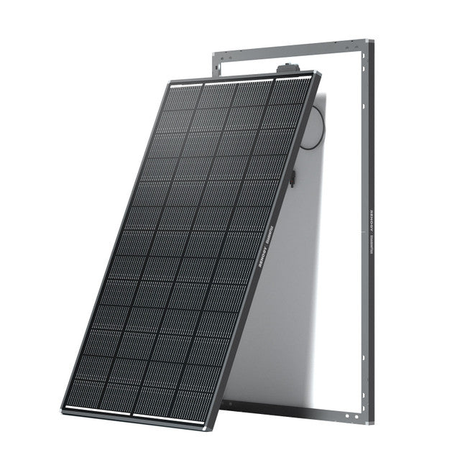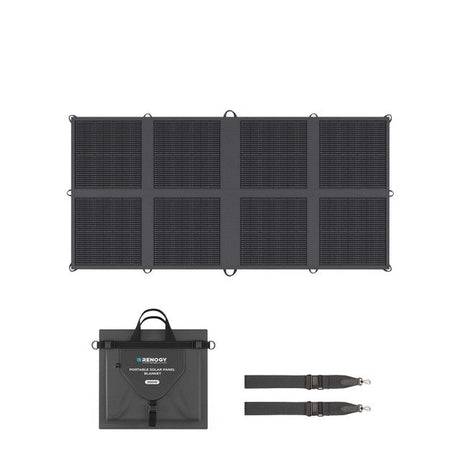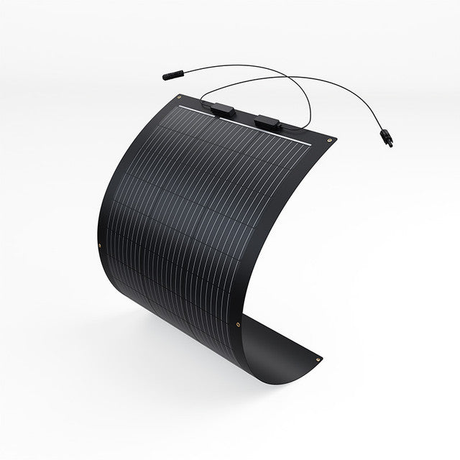- Hot
Renogy
200/400W N-Type Portable Solar Panel Blanket
25% EfficiencyUltra-Light Portable PowerFrom C$359.99Unit price /Unavailable Renogy
100/300W N-Type Lightweight Portable Solar Panel Suitcase
25% EfficiencyRugged Portable Outdoor PowerFrom C$184.99C$229.99Unit price /UnavailableRenogy
220/400W Lightweight Portable Solar Panel Suitcase
23% EfficiencyRugged Portable Outdoor PowerFrom C$321.99C$395.99Unit price /UnavailableRenogy
E.Flex 100/200W N-Type Portable Solar Panel
25% EfficiencyPortable Direct-Charge PowerFrom C$170.99C$179.99Unit price /UnavailableRenogy CA
E.Flex 30W Portable Solar Panel
22.4% EfficiencyPocket-Sized Emergency PowerC$99.99Unit price /Unavailable
Frequently Asked Questions
How Efficient Are Portable Solar Panels?
How Efficient Are Portable Solar Panels?
Portable solar panel efficiency is measured under Standard Test Conditions (STC), which represent ideal lab settings. In real-world use, efficiency is affected by sunlight, temperature, and panel angle. High-quality monocrystalline portable panels typically achieve 23-25% cell efficiency, though actual performance may vary based on conditions.
Do Portable Solar Panels Work at Night?
Do Portable Solar Panels Work at Night?
No, portable solar panels do not generate usable power at night. While they can absorb a tiny amount of energy from moonlight, the output is less than 0.3% of what they produce in direct sunlight—far too little for practical use. To power devices at night, you’ll need a battery to store excess energy generated during the day.
What are the Advantages of Portable Solar Panels?
What are the Advantages of Portable Solar Panels?
Portable solar panels offer convenience and flexibility, making them ideal for camping, RV trips, boating, and emergency backup power. They are typically lightweight and foldable, allowing for easy transport and storage. Many models offer plug-and-play functionality for quick setup without installation, but sometimes you need the help of a switch cable. Some panels are also designed with durable, weather-resistant materials to withstand outdoor conditions.
Do Portable Solar Panels Work in Winter?
Do Portable Solar Panels Work in Winter?
Yes, portable solar panels can work in winter. While cold temperatures can slightly improve the conversion efficiency of solar panels, this doesn't significantly increase their actual power output. The overall electricity generation in winter is typically lower than in summer due to shorter daylight hours, weaker sunlight intensity, and the possibility of snow covering the panels. To optimize performance, it's essential to keep the panels clear of snow and adjust their angle to capture as much sunlight as possible.
How Long do Portable Solar Panels Last?
How Long do Portable Solar Panels Last?
Most portable solar panels last 10-25 years, depending on build quality, usage, and maintenance.
What Can a Portable Solar Panel Run?
What Can a Portable Solar Panel Run?
The devices a portable solar panel can run depend on its wattage and the availability of a battery or solar generator. Smaller portable solar panels (50-100W) can charge smartphones, tablets, cameras, and small lights. Mid-sized panels (100-200W) can power laptops, portable refrigerators and fans. Larger portable panels (200W and above) can support electric coolers, TVs, and power stations for extended use. For consistent energy needs or nighttime use, pairing your panel with a solar battery is recommended.













